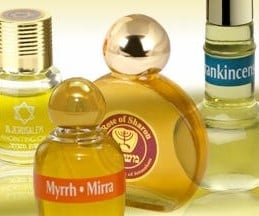Decoding Anointing Oil: A Buying Guide
In our blog posts on Anointing Oil here and here, we unraveled the incredible history and controversial nature of Anointing Oils in Judaism, from the making of the Shemen HaMishchah, the original Anointing Oil from the Torah, to exploring the potential uses of its modern-day counterparts, but now that we’ve covered the basics, it’s time to dive a little deeper. Specifically, we want to take a closer look at the Anointing Oils available on the market today and learn about their compositions and benefits.
Today’s Anointing Oils are made quite similarly to how they were made in Biblical times, using natural ingredients and traditional methods, although thankfully the machinery and materials used today to comply with commercial health and safety standards. As with ancient Anointing Oil, olive oil is used as a base, and different components are blended into it in varying quantities until the scent of spices has become fully incorporated. The final fragrance depends on which biblical spice or spices were used.
Most modern Anointing Oils keep it simple with only one or two spices, although there are also Anointing Oils made with a larger number of spices. These Anointing Oils usually have poetic names derived from Scripture verses and Biblical symbolism such as Lion of Judah, Queen Esther, or Rose of Sharon to describe their complex blends.
Some of the most common ingredients found in the Anointing Oils on our site include:
Olive Oil:
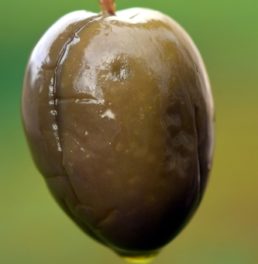 As the main ingredient of Shemen HaMishchah and all modern Anointing Oils, olive oil has many valuable properties. Pressed from the fruit of olive trees, olive oil has been shown to be extremely beneficial when applied topically. With its high vitamin content, antioxidants, and hydrating effect on the skin, hair, and nails, olive oil is one of the best natural moisturizers you can find.
As the main ingredient of Shemen HaMishchah and all modern Anointing Oils, olive oil has many valuable properties. Pressed from the fruit of olive trees, olive oil has been shown to be extremely beneficial when applied topically. With its high vitamin content, antioxidants, and hydrating effect on the skin, hair, and nails, olive oil is one of the best natural moisturizers you can find.
❤︎ Browse all our oil-based anointing oils here!
Myrrh:
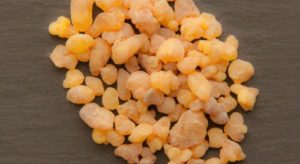 Best-known for its role in ancient perfumes and spiritual ointments, this fragrant Biblical substance is a natural resin extracted from small, thorny trees belonging to the genus Commiphora Myrrha. The yellowish resin has a gummy, waxy texture that quickly hardens and darkens into a rich amber-brown color and its scent is often described as being sharp, pleasing, and slightly bitter. Besides being a famous component in ancient Anointing Oil, myrrh was also notably used on Queen Esther, who spent months bathing in oil of myrrh and other fragrant lotions prior to being presented to King Ahasuerus as a prospective bride.
Best-known for its role in ancient perfumes and spiritual ointments, this fragrant Biblical substance is a natural resin extracted from small, thorny trees belonging to the genus Commiphora Myrrha. The yellowish resin has a gummy, waxy texture that quickly hardens and darkens into a rich amber-brown color and its scent is often described as being sharp, pleasing, and slightly bitter. Besides being a famous component in ancient Anointing Oil, myrrh was also notably used on Queen Esther, who spent months bathing in oil of myrrh and other fragrant lotions prior to being presented to King Ahasuerus as a prospective bride.
A natural astringent with anti-inflammatory properties, myrrh can be applied topically to the skin and hair to soothe skin irritations and reduce hair loss. It can also be helpful in relieving coughs, colds, and congestion when used for aromatherapy along with promoting alertness and brain stimulation. Its healing benefits make it a great moisturizer, with Biblical origins to boot!
❤︎ Browse anointing oils made with myrrh here!
Frankincense:
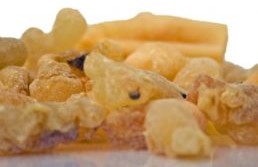 While not one of the ingredients of Shemen HaMishchah, frankincense was used in the making of Ketoret, the sacred incense burned in the Holy Temple and it has been highly prized since antiquity with many considering it to be a “pure incense.” Another natural resin, the scent of frankincense is characterized by its earthy, woody, and slightly spicy fragrance, which many describe as sweet and comforting. It has been used as a flavoring for food as well as a medicine, painkiller, disinfectant, and most famously, a perfume. Its sweet-smoky fragrance is distinctive, and when mixed with a carrier oil, it creates a tempting and timeless scent.
While not one of the ingredients of Shemen HaMishchah, frankincense was used in the making of Ketoret, the sacred incense burned in the Holy Temple and it has been highly prized since antiquity with many considering it to be a “pure incense.” Another natural resin, the scent of frankincense is characterized by its earthy, woody, and slightly spicy fragrance, which many describe as sweet and comforting. It has been used as a flavoring for food as well as a medicine, painkiller, disinfectant, and most famously, a perfume. Its sweet-smoky fragrance is distinctive, and when mixed with a carrier oil, it creates a tempting and timeless scent.
Possessing aroma-therapeutic and anti-aging properties, frankincense is thought to be helpful in relieving feelings of anxiety, reducing congestion, and strengthening the respiratory system, as well as stimulating the immune system.
❤︎ Browse anointing oils made with frankincense here!
Spikenard:
Like frankincense, spikenard was an ingredient used in the Ketoret. It is an essential oil derived from Nardostachys Jatamansi, a flowering plant in the honeysuckle family. It has a sweet and earthy scent, which research shows may help relieve anxiety, depression, insomnia, and stress. Spikenard also thought to have anti-inflammatory and antibacterial qualities that can help with fungal infections and dandruff, among other things.
❤︎ Browse anointing oils made with spikenard here!
Cinnamon:
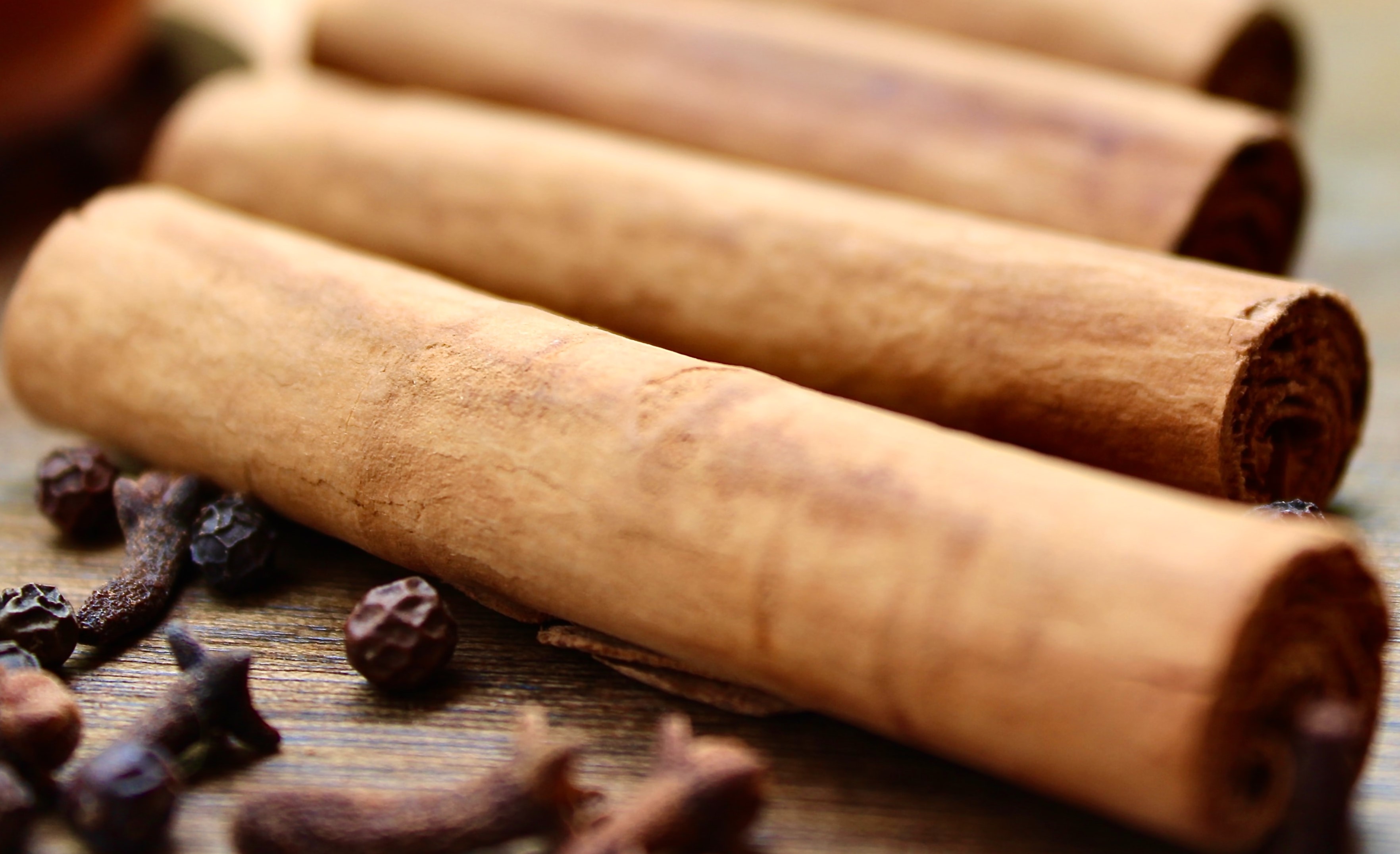 Recognized as one of the five ingredients in ancient Anointing Oil, cinnamon has been used in diverse way throughout history: for culinary purposes, medicine, cosmetic use, and more. It is one of the oldest known spices and was once worth its weight in gold. With its sweet and spicy scent, it’s easy to see how this familiar spice could be so valuable, as it possesses many anti-inflammatory and aroma-therapeutic properties that can relieve a variety of physical and emotional ailments. From alleviating feelings of depression and exhaustion to improving skin complaints and muscle pains, cinnamon proves time after time that it is good for more than just spicing up your favorite dish!
Recognized as one of the five ingredients in ancient Anointing Oil, cinnamon has been used in diverse way throughout history: for culinary purposes, medicine, cosmetic use, and more. It is one of the oldest known spices and was once worth its weight in gold. With its sweet and spicy scent, it’s easy to see how this familiar spice could be so valuable, as it possesses many anti-inflammatory and aroma-therapeutic properties that can relieve a variety of physical and emotional ailments. From alleviating feelings of depression and exhaustion to improving skin complaints and muscle pains, cinnamon proves time after time that it is good for more than just spicing up your favorite dish!
❤︎ Browse anointing oils made with cinnamon here!
Cassia:
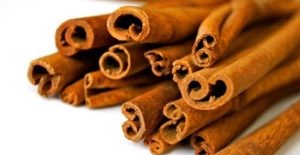 A close cousin of cinnamon, cassia is another spice that was used in the making of Shemen HaMishchah. Similar in appearance and sharing many of the same qualities as cinnamon, cassia is valued medicinally for its antibacterial, antifungal, and antiviral properties, as well as for its aroma-therapeutic virtues. Like cinnamon, it also has a sweet and spicy scent.
A close cousin of cinnamon, cassia is another spice that was used in the making of Shemen HaMishchah. Similar in appearance and sharing many of the same qualities as cinnamon, cassia is valued medicinally for its antibacterial, antifungal, and antiviral properties, as well as for its aroma-therapeutic virtues. Like cinnamon, it also has a sweet and spicy scent.
❤︎ Browse anointing oils made with cassia here!
Rose of Sharon:
The Rose of Sharon, thought to be the labdanum flower, provides a sweet smelling aroma and is mentioned in the Song of Songs: "I am the rose of Sharon, the lily of the valleys". The name comes from its original location, being found in the Sharon Plains of Central Israel. Rose of Sharon oil has a floral scent and makes for a light and delicate perfume that uplifts and soothes the wearer's spirit.
❤︎ Browse anointing oils made with Rose of Sharon here!
Lily of the Valley:
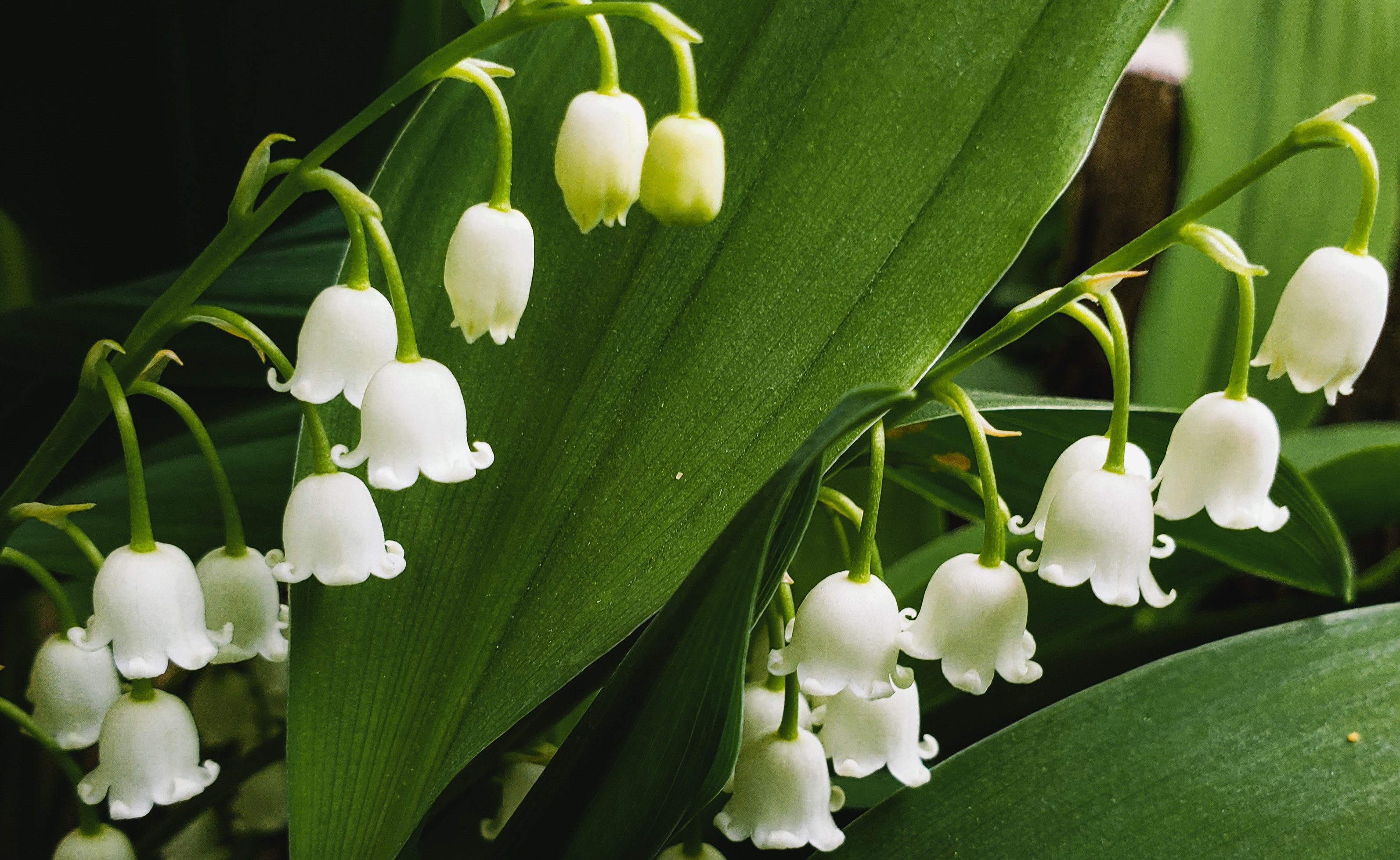 Lily of the Valley is a green garden plant with bell-shaped white flowers renowned for their sweet fragrance, and is even mentioned in the Bible in the Song of Songs. The plant is lethal when consumed, but is a popular commercial perfume scent. An anointing oil infused with Lily of the Valley is rich in antioxidant vitamins and helps fight visible signs of aging while simultaneously giving your skin a deep conditioning.
Lily of the Valley is a green garden plant with bell-shaped white flowers renowned for their sweet fragrance, and is even mentioned in the Bible in the Song of Songs. The plant is lethal when consumed, but is a popular commercial perfume scent. An anointing oil infused with Lily of the Valley is rich in antioxidant vitamins and helps fight visible signs of aging while simultaneously giving your skin a deep conditioning.
❤︎ Browse anointing oils made with Lily of the Valley here!
Pomegranate:
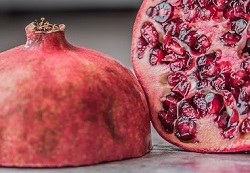 The pomegranate is one of the Biblical Seven Species and an antioxidant-rich superfood indigenous to the Land of Israel. Pomegranate-scented anointing oil is made with pomegranate essential oil, which is cold-pressed from the fruit's seeds, and truly exhibits the best of Israel’s nature. It’s not just moisturizing and pleasant-smelling, but also helps fight visible signs of aging. This Biblical fruit also plays an important role in Jewish symbolism, and is often used to represent love, abundance, fertility, wealth, joy, or prosperity.
The pomegranate is one of the Biblical Seven Species and an antioxidant-rich superfood indigenous to the Land of Israel. Pomegranate-scented anointing oil is made with pomegranate essential oil, which is cold-pressed from the fruit's seeds, and truly exhibits the best of Israel’s nature. It’s not just moisturizing and pleasant-smelling, but also helps fight visible signs of aging. This Biblical fruit also plays an important role in Jewish symbolism, and is often used to represent love, abundance, fertility, wealth, joy, or prosperity.
❤︎ Browse anointing oils made with pomegranate here!
While the Torah mentions many additional fragrant substances that have found their way into one aromatic blend or another, these herbs and spices are by far the most popularly used to make Anointing Oil today. To discover more fantastic biblical scents and blends, check out out our amazing selection of products, where we carry a full range of the finest Israeli-made Anointing Oils you can buy!


